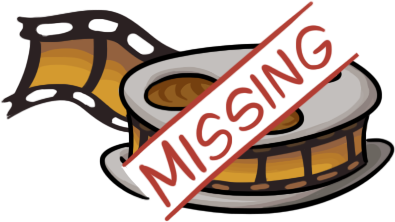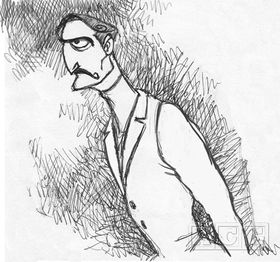Vanishing Act (lost development material of cancelled Lucas Arts adventure game; 1997-1998): Difference between revisions
No edit summary |
No edit summary |
||
| Line 34: | Line 34: | ||
* [https://scummbar.com/resources/articles/index.php?newssniffer=readarticle&article=1011 Interview with Chris Purvis at Scumm Bar] | * [https://scummbar.com/resources/articles/index.php?newssniffer=readarticle&article=1011 Interview with Chris Purvis at Scumm Bar] | ||
[[Category:Lost video games]] | [[Category:Lost video games]] [[Category:Needing work]] | ||
Revision as of 14:24, 30 May 2019
Vanishing Act (also known as Magic Box) was an adventure game project started by LucasArts employees Larry Ahern and Jonathan Ackley who previously worked on Curse of Monkey Island; the programming for it was done by Chris Purvis, Randy Stevenson, and Michelle Hinners. The development started soon after Larry and Jonathan finished Curse; however, the project was abandoned when Jonathan left LucasArts to start a company of his own.
Premise
Bill Tiller, another former LucasArts employee, mentioned the game in an online chat in 2003:
<remio> Can you tell us anything about the cancelled post-CMI Ackley/Ahern project "The Magic Box"? Were you involved with this at all?
<btiller> I could have been involved but I wanted to try something else, but in hindsight I should have stuck with them on it.
<btiller> It was called vanishing act which was an unfortunately named project because it did just that
<btiller> It was going to be real time 3d but very much like a traditional game. the genre was steam punk/ Bavarian. Think Baron munchuasen (?) meets MI
Later, in 2012, Larry Ahern discussed the project in detail in an Adventure Classic Gaming interview:
"The game was set in a steam punk world and was about a magician/thief confronting the menace of the evil industrialist, Frau Richter, and her robotic henchmen. Richter was a massive Germanic woman dressed like the fat lady/Valkyrie in the opera. She could bend steel with her bare hands, and liked to build mechanical admirers/henchmen, since no one in real life had anything kind to say about her.
It was going to be a 3D game in an interesting world with bizarre characters and some really fun interactive elements, including the ability to turn into a raven or a spider to solve puzzles. But it was very ambitious. That, and the fact that Jonathan decided to leave LucasArts to form a children's game company with his wife probably had something to do with the game stalling out.
Of course, while many of the ideas from this game were breathtaking and phenomenally well-conceived, all are wholly owned and copyrighted by LucasArts Entertainment Company (and any resemblance to persons living, dead or cartooned is purely coincidental), so I would never dream of reusing any of the material in any future projects without express prior written permission from the trademark holders or their assignees forthwith, thereby, in perpetuity, etc., and all that other legal stuff and so on, Amen."

